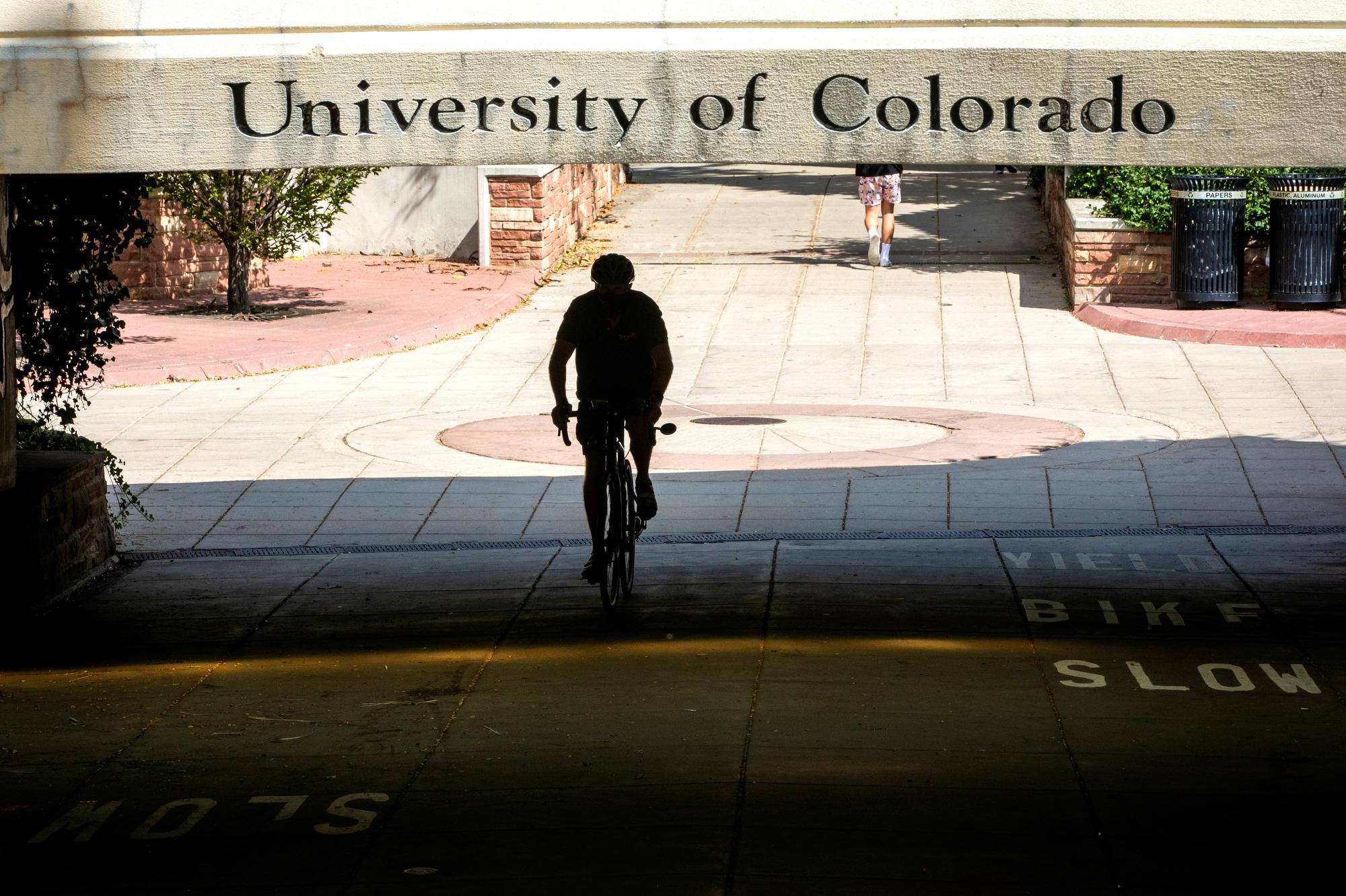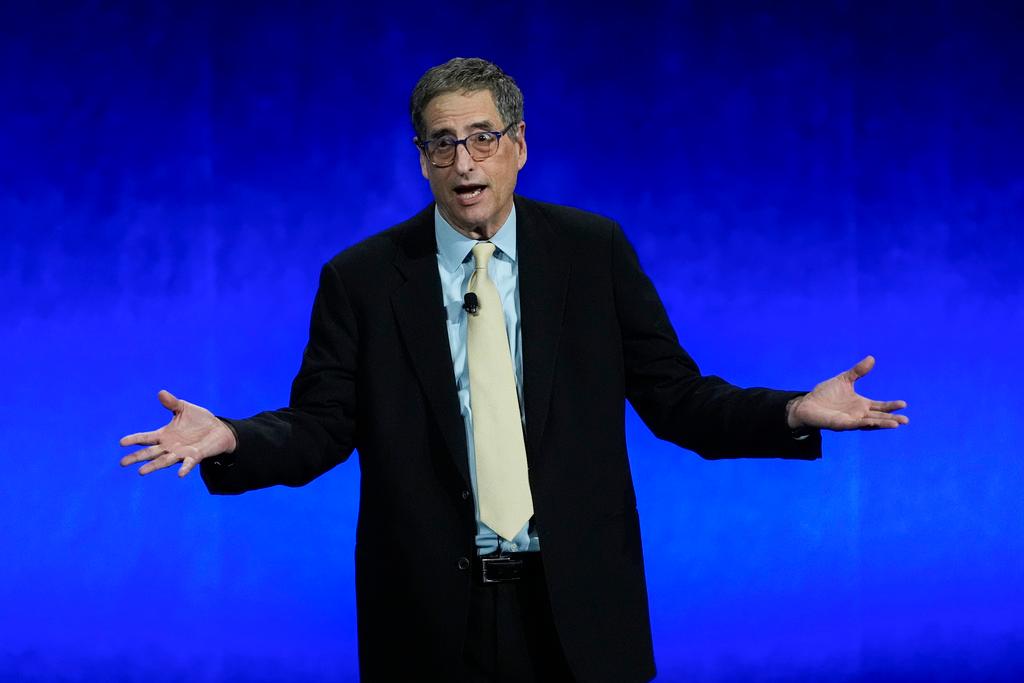
PointsBet, a Denver-based sports betting company that is a corporate sponsor of the University of Colorado Boulder’s athletics program, says it is pitching its brand to alums in Colorado and other states where fans are old enough to bet legally.
But PointsBet’s association with the university strongly suggests another target: Students.
Under its agreement with Buffalo Sports Properties, a company representing CU Boulder, PointsBet’s signs can be displayed at the university’s spring commencement and even at events where teenagers are likely to show up, such as football camps and new student orientation.
Until January, the university received a $30 fee when anyone, including a student, signed up at the PointsBet site using a CU promotional code. The university and the sports betting company made a “mutual decision to discontinue that portion of the agreement,” according to a university spokesperson.
The largest audience of all for PointsBet may be at CU Boulder football games. At the university’s homecoming contest in October, 40,000 fans showed up to watch their beloved Buffs and message boards that flashed: “PointsBet: Do It Live.” In the crowd were thousands of students, many under age 21, the legal gambling age in Colorado.
In Fall 2022 alone, 7,106 first-year students entered CU Boulder.
Richard Karcher, a law professor who teaches courses on sports and ethics at Eastern Michigan University, noted that PointsBet’s marketing is reaching a young audience regardless of its claims.
“Who cares whether the university intends for its advertising to reach their students?” Karcher wrote in an email. “It is, and the university knows it.”
As part of a four-month investigation into sports betting on college campuses, The Shirley Povich Center for Sports Journalism and the Howard Center for Investigative Journalism at the University of Maryland obtained the agreement between PointsBet and Buffalo Sports Properties using public records laws.
The 16-page agreement specifies where and for which events the company’s signs can be posted.
PointsBet’s deal with CU Boulder, signed in September 2020, is notable — it was one of the first to match a university athletics program with a sports betting platform.
Buffalo Sports Properties’ deal with PointsBet pays the university $1.625 million over five years.
At CU, 34% of students are 18 and 19 years old, according to the website College Factual. However, the university prohibits all gambling in university housing.
B. David Ridpath, a professor of sports administration at Ohio University, said sports betting is pervasive, and “students like anybody else are going to do it. That’s why it’s become much more mainstream.”
“I struggle with anytime there’s predatory marketing, whether it’s cigarettes, alcohol,” Ridpath said. “You could make the same argument with gambling.”
PointsBet declined interview requests for this article. In an interview with Sports Business Journal in December 2021, PointsBet’s chief strategy officer, Eric Foote, said the company focuses its marketing on “the alumni base, the alumni base in Colorado or other states.”
Under the agreement at CU Boulder, PointsBet receives wide exposure. Each Buffs football radio broadcast must include a pregame segment featuring the gambling company, a 10-second “live mention” during the game and three 30-second in-game commercials.
At Folsom Field, CU Boulder’s football stadium, fans see PointsBet messages on various videoboard and LED screens. The public address announcer must make one mention of the company to the crowd.
The sponsorship deal also includes CU Boulder’s athletics website — PointsBet receives banner ads and five “home-page takeovers.”
Asked about the provision in the PointsBet agreement that permits the company to display signs at new student orientation and other events attended by students, some too young to bet legally in Colorado, a university spokesperson noted that sports-betting signs are “accompanied by corresponding signage with problem-gambling resources and we have a number of safeguards in place to ensure student safety.”
College students are among the most vulnerable to compulsive gambling. Studies from 2007 to 2014 show that 75% to 80% of college students had gambled in the previous year. That was before a 2018 decision of the U.S. Supreme Court that has expanded legal sports betting to more than 30 states.
Sponsorships with betting platforms could put students at increased risk, say some addiction experts. “A lot of kids will be exposed to gambling promotion, and it will have the imprimatur of their university,” said Keith Whyte, executive director of the National Council on Problem Gambling.
But CU Boulder alum Janet Borchert said the PointsBet deal was “wonderful,” adding, “it’s really going to help the school.”
Her only problem with the agreement — she didn’t know about it sooner.
“Somebody needs to be telling us this because I would totally be doing it to help the school. I would sign up today,” Borchert said.









